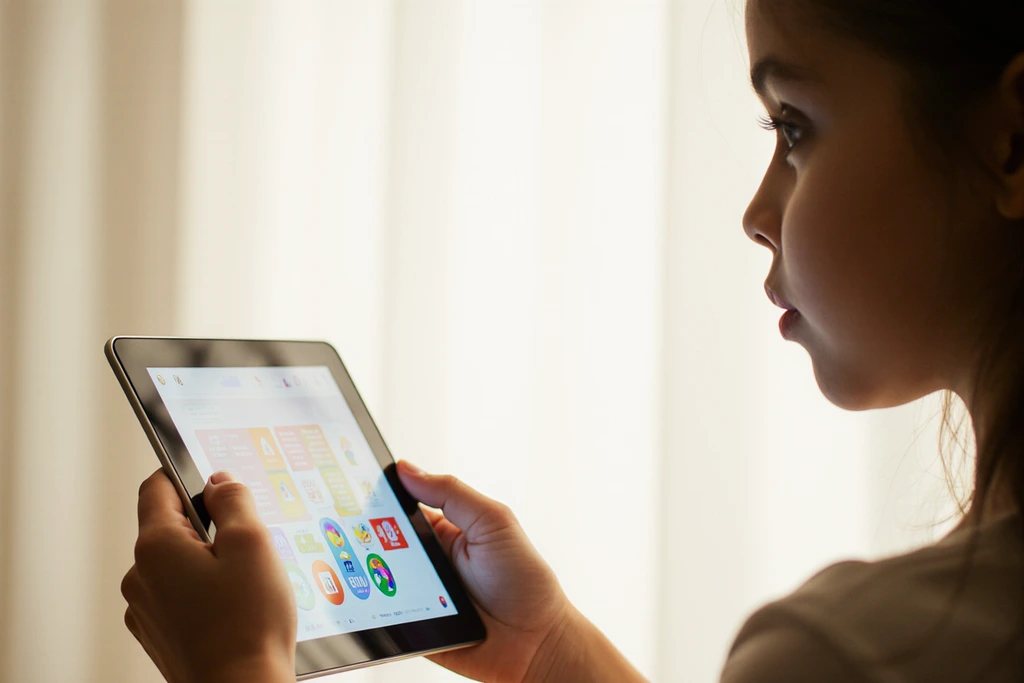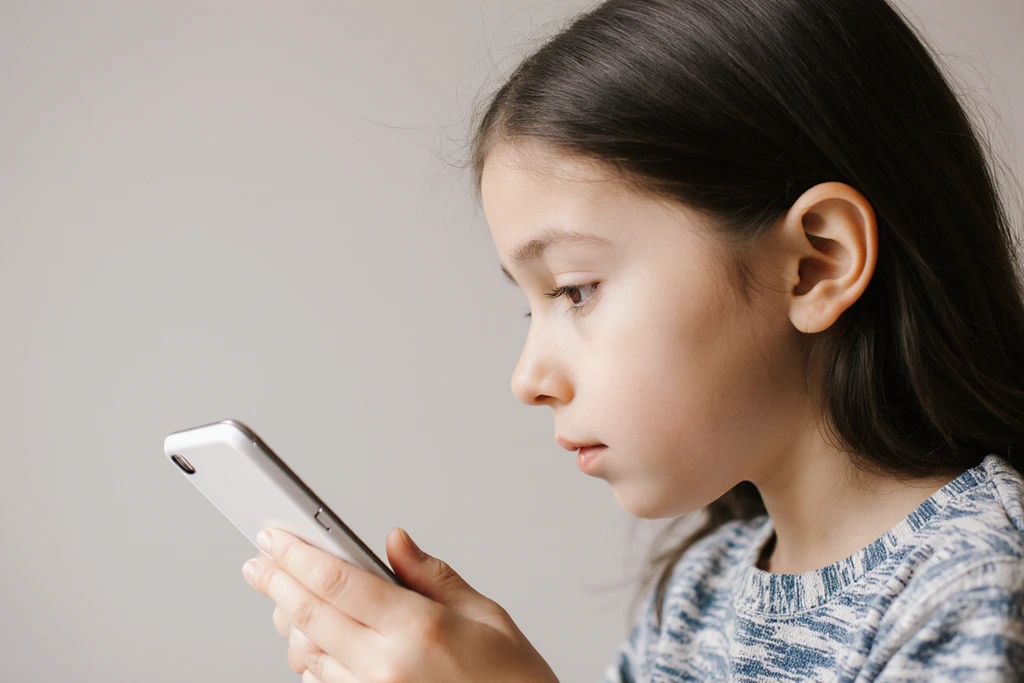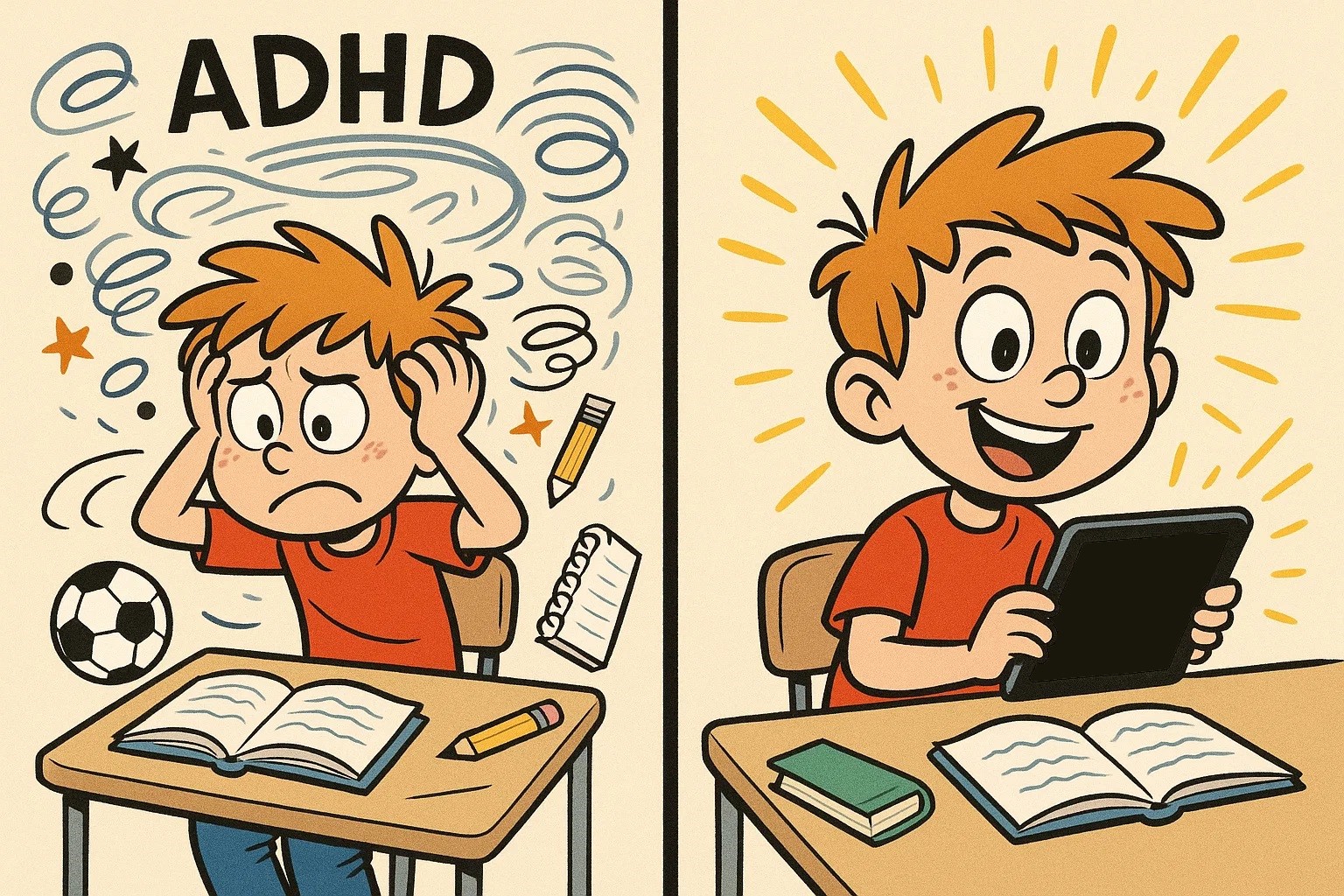For children with this condition, traditional school settings can sometimes present unique challenges. Distractions, difficulty with sustained attention, and challenges with executive functions like planning and organization may impede their learning. This is where thoughtfully designed educational applications can bridge the gap, offering a tailored approach that resonates with how their brains work.
How Digital Applications Support ADHD-Friendly Learning

Educational applications often employ features that naturally support students with ADHD. Many incorporate visual and auditory cues, interactive elements, and gamified challenges, which can maintain engagement far more effectively than static textbooks. For instance, instant feedback within an app provides immediate gratification, which can be highly motivating for a child with ADHD.
Benefits Beyond Traditional Methods

The flexibility and personalized nature of online learning through digital platforms offer benefits beyond what traditional methods alone can provide. Children can learn at their own pace, revisit concepts as often as needed, and receive content adjusted to their individual focus and comprehension levels. This adaptive pacing can prevent both boredom and overwhelm, which are common challenges for learners who have attention differences. An app also reduces external distractions by creating a contained educational environment, helping a child to concentrate on the task at hand.
Categories of Educational Applications for ADHD
The landscape of educational applications for children with ADHD is diverse, with solutions targeting various areas of development and learning.
Organization and Time Management Apps
Many students who experience executive function challenges struggle with organization and time management. These digital tools are designed to alleviate these difficulties. They often feature visual timers, customizable checklists, reminders, and digital planners.
- myHomework: Tracks homework and school assignments, aiding children who need help managing tasks and deadlines. It’s a leading cross-platform student planner, with free basic features available on Android and iOS.
Academic Learning Apps with ADHD-Friendly Features

For academic subjects like math, reading, or writing, certain educational applications integrate features that are particularly beneficial for students with this diagnosis. These might include multisensory input, adaptive learning paths, and content delivered in short, manageable chunks.
- Bugs and Buttons: For younger kids, this interactive app features games designed to strengthen memory, problem-solving, and cognitive skills through math and pattern recognition. Its engaging format can capture and maintain the attention of young learners with attention differences.
- Splash Math: Offers adaptive elementary math activities that keep kids engaged with visuals, rewards, and variety in gameplay. The personalized approach helps students progress at their own pace, making math skill acquisition more accessible and less frustrating.
- Teach Your Monster to Read: Combines games and adventure for early learners to develop reading skills (ages 3-6). Its phonics-focused approach within an imaginative context makes education engaging.
- BrainPOP Jr.: Provides educational videos and quizzes on core subjects, especially useful for younger children. Its relatable characters and humorous stories deliver content in an accessible way, with built-in questions to help students focus.
- Epic! Kids’ Books and Videos: Gives access to a vast digital library suited for a wide range of reading levels—ideal for book lovers and those needing extra reading support. The sheer volume of engaging content can keep children with ADHD interested.
- Monster Math & Moose Math: Fun, visual, and curriculum-based math games that make learning number concepts engaging for children. A parent review for Monster Math noted, “My son has ADHD and loves the game. He is able to sit and play for an extended period of time. Without realizing that he is also learning.”
Social-Emotional Learning Apps
Social and emotional skills are crucial for a child’s overall development, and digital tools can play a supportive role here too. SEL tools can help children facing emotional regulation challenges develop empathy, self-awareness, and coping mechanisms.
- Otter AI: Records and transcribes class discussions and lectures, ideal for students with working memory challenges or executive function needs. It provides highly accurate real-time transcriptions, summaries, and even action items, greatly assisting those who struggle with traditional note-taking during online or in-person classes.
Choosing the Right Educational App
Selecting the best app for my child involves careful consideration of several factors to ensure it truly meets their individual needs.
Key Considerations for Parents
When exploring educational platforms, parents should look for qualities that promote engagement and effective learning for their child with attention-based needs. This includes whether the app is free or has subscription costs, its age-appropriateness, and if it offers a distraction-free environment. It’s important to consider if the app has customizable settings, allowing you to tailor the experience, and if it provides progress tracking so you can monitor your child’s development. The American Academy of Pediatrics (AAP) recommends choosing “high-quality programming/applications” and using them together with children, especially for younger kids, as this enhances skill development.
App Features to Prioritize
The most effective digital resources for children with attention differences often share certain key features. These include:
- Interactive and Gamified Elements: These keep kids engaged and motivated.
- Visual Cues and Aids: Many students with ADHD benefit from visual schedules, reminders, and progress indicators.
- Immediate Feedback: Instant responses to actions help reinforce knowledge gain and maintain interest.
- Customization: The ability to adjust difficulty, timers, or content to your child’s specific needs.
- Ad-Free Experience: Ads can be significant distractions for children, especially those with attention challenges. Many free versions of an app may contain ads, so parents might consider paid versions or ad-free alternatives.
Parent Reviews and Expert Recommendations

Before committing to an app, reading parent reviews can provide invaluable insights into its real-world usability and effectiveness. These reviews often highlight how the app performs for children with similar needs to your child. Additionally, seeking recommendations from child development experts, educators, or therapists who specialize in ADHD can guide you towards the most highly-regarded and evidence-informed app or solutions. Reputable sources such as CHADD and ADDitude often publish lists and reviews of best applications based on expert insights and user feedback.
Frequently Asked Questions
Navigating the world of educational applications can bring up many questions for parents. Here are answers to some of the most common ones.


